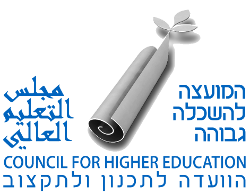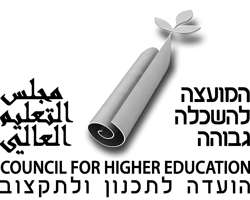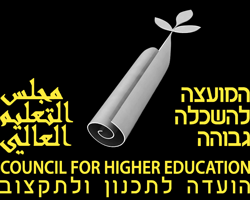During the academic year of 2011, the Higher Education Council and the Planning and Budgeting Committee (PBC) initiated an enrichment program as an integral part of undergraduate studies, which is provided outside of the main discipline that the student studies. They characterized it as an important tool for designing the adult nature of the undergraduate as an educated person with knowledge in various fields – beyond the realm of knowledge in which he has been studying. The PBC decided to participate in funding the development of a dedicated enrichment study-program in the institutions.
The enrichment program consists of broad-knowledge courses in various fields, developed specifically for the benefit of the program, at a scope of not less than 6-10 credits, which are taught by academia’s best teachers. The significance of the enrichment courses is that students studying for a bachelor’s degree in Humanities, for example, are required to take enrichment courses in other fields of knowledge, such as the exact sciences, natural sciences, social sciences, and vice versa.
Accordingly, in academic year 2011, a first Public Appeal was submitted for enrichment study-programs and has dedicated support for the subject. In the academic years 2012-2013, programs for enrichment studies were approved in nine institutions (universities and colleges). Within this framework, 276 courses were approved for funding, of which 157 were new and 119 were upgraded.
On 20.2.2013, the Planning and Budgeting Committee (PBC) approved a new outline for phase 2 of the enrichment program within the framework of the undergraduate degree, which expands the number of institutions participating in the program, provides the possibility of cooperation between institutions, and also opens a special track for building high-quality flagship courses in academia. The flagship courses are intended to reach a broad body of students in each institution and can be purchased and taught via remote instruction technologies that will reflect the unique nature of the institutions and will be marketed to other institutions. The flagship courses will be taught by the best lecturers – exceptional, learned academics with a high level of teaching, who’s very proximity will enrich the student’s world. The aim of the courses is to be a conceptual preparation for citizenship and civil responsibility in a changing world, a meeting with the basic problems of modern society, the establishment, economics and education. Funding for the development of flagship courses will be offered to institutions that have spent at least two years in developing enrichment courses, and have developed at least 50% of the courses required, in a stable situation. Due to the nature of the courses, as stated above, an expanded budget will be given, spread over three years, according to the stages of their development and with individual accompaniment by the Steering Committee and its approval.
Furthermore, as part of the new framework for the enrichment studies program, the Planning and Budgeting Committee (PBC), in cooperation with the Ministry of Finance, encourages the development and existence of enrichment courses in the field of financial education, in the framework of undergraduate studies in funded institutions of higher education. The total amount of the budget that was allocated by the PBC, for the benefit of phase B of the program, is about 20,000 thousand NIS, spread over four years, between the years 2014-2017.
A special steering committee of the PBC and the Higher Education Council, will accompany and lead the process from the beginning
The Enrichment Studies Program, Phase C


